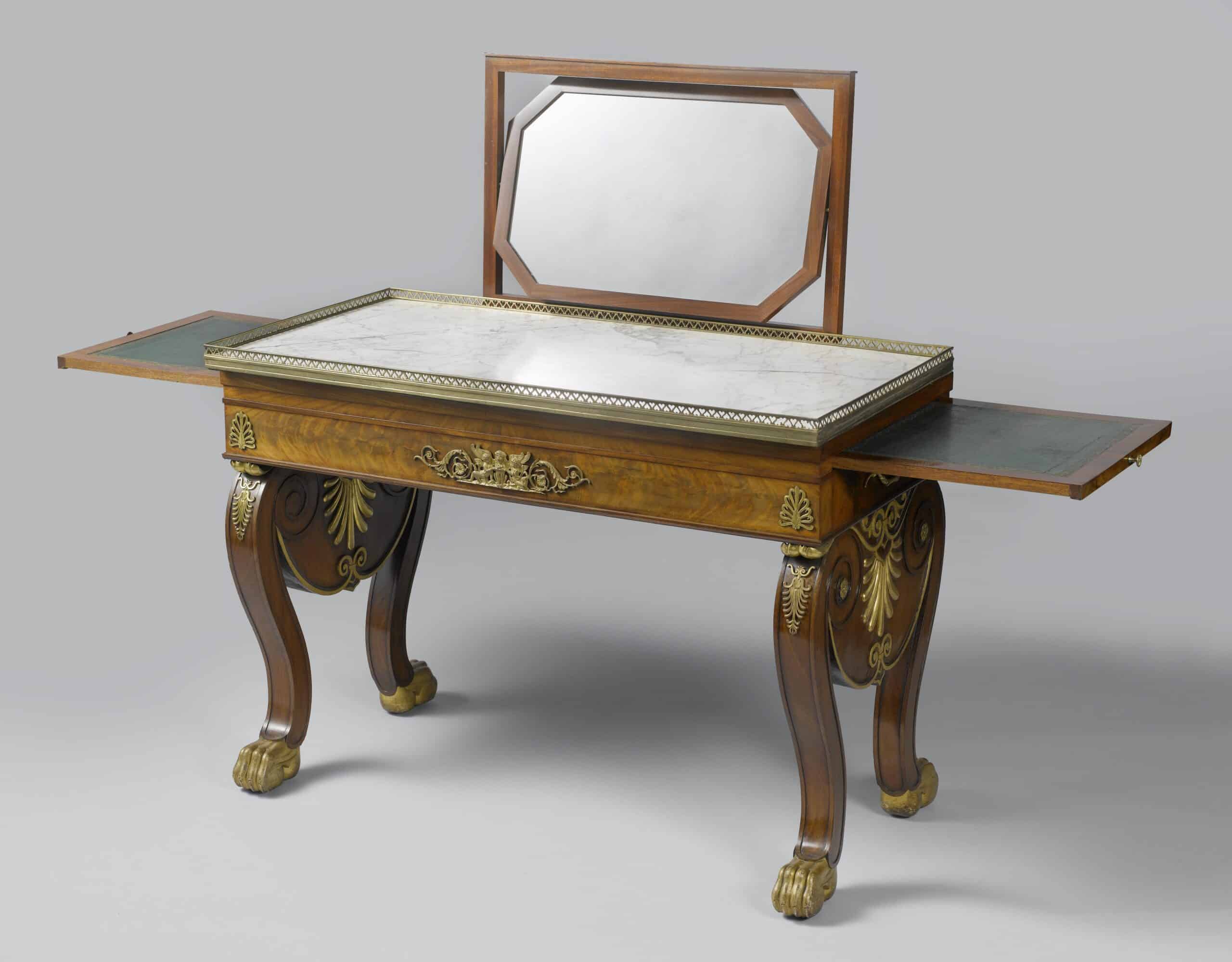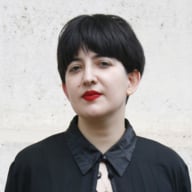Eighteen young writers from Flanders and the Netherlands have brought nineteenth-century artefacts from the Rijksmuseum to life. They wrote their stories in response to the question: what do you see when you look at these objects through the lens of impending doom? We join Hasret Emine in looking at a dressing table. ‘I don’t need to be human to be treated humanely.’
 Dressing table, Carel Breytspraak, c. 1808 – c. 1810
Dressing table, Carel Breytspraak, c. 1808 – c. 1810© Rijksmuseum Collection, Amsterdam
Dear Louis,
I remember how you sat in front of me, on the eve of your coronation. A child aged five, terrified but also proud, because your father regarded you as his equal, as a man. As King of Holland. A title not every child could hold. A title that perhaps no child should ever have to hold.
Being human and becoming human are two separate things, Louis. Take a look at the lessons you were taught: how to stand, walk, nod, converse, fight, greet, dress and eat. Most children your age will never be taught these things and become human without ever learning how.
A child aged five is sleeping on the street outside an asylum seekers’ centre close to collapse. A child aged five translates the racism in blue envelopes to his parents. A child aged five drowns in the Mediterranean. A child aged five wears his brother’s clothes, who in turn wears his father’s, who has nothing left to wear himself.
A child aged five shouldn’t have doubts about her gender identity. A child aged five is asked where she’s really from. A child aged five has no money for swimming lessons, no money for the train, no money to do what royal children can easily do.
An inanimate object, I’m treated more humanely in this country than humankind itself. I’m looked after and exhibited in an elegant building among stolen artefacts. I’m valued as an important part of history. I’ve inherited your privileges only because I was made for you, Louis, a royal child aged five.
Day in, day out, human eyes stare at me. Fearful eyes, lively eyes, curious eyes and nervous eyes. They all try to catch a glimpse of themselves in my mirror. What they rarely do, Louis, is look beyond themselves, really look at me, to see which lessons I embody.
Lessons that show human beings that children of flesh and bone deserve a more humane and dignified existence than a dressing table made of oak, mahogany, brass and marble. Even children without made-up titles for made-up blue blood, children that tend to be ignored.
I keep hoping, Louis, hoping that one day somebody will stand before me who has the courage to look, the courage to see that humanity is something to hold on to, to not forget. Until then, I will stand here, in this room, a showpiece among humans who look, but don’t see.












